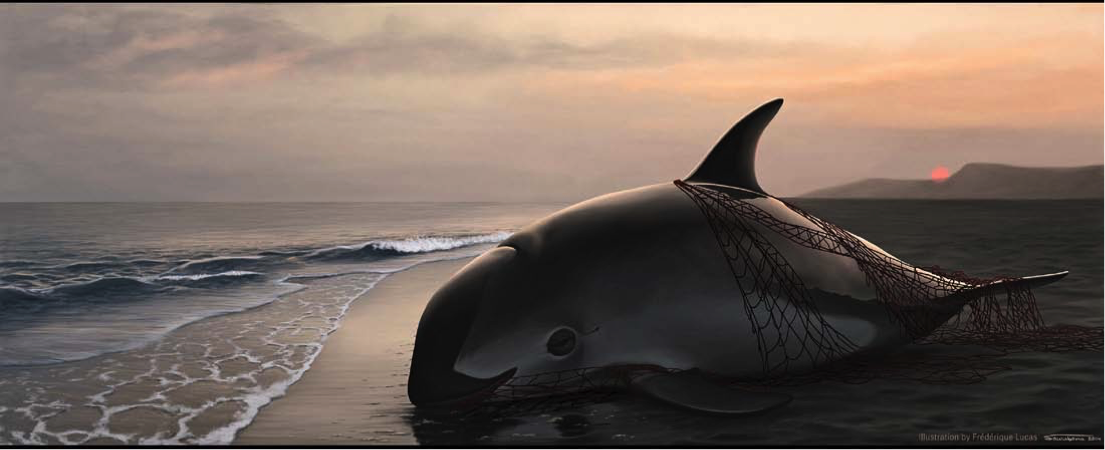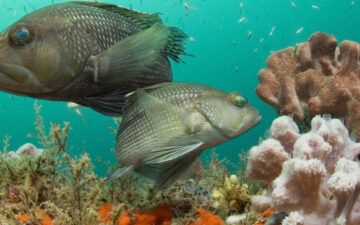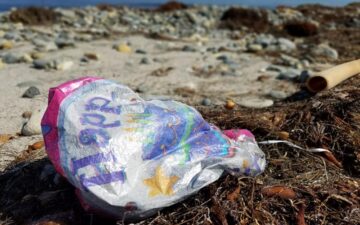Author: Luke Elder, Research Analyst, The Ocean Foundation

WHAT IS THE PROBLEM?
Meaning “little cow” in Spanish, the vaquita (Phocoena sinus) is one of six species of “true” porpoise and is the only one that lives in the warm waters of the eastern Pacific Ocean. An elusive and timid species, the vaquita is both the smallest and most endangered cetacean in the world. The best estimate of the vaquita population is 50 individuals, and their numbers are declining rapidly: the International Whaling Commission’s 2015 report noted that the vaquita population declined by 42% from 2013 to 2014.
Vaquita are difficult to study because of their cryptic behavior and rarity. As the smallest cetacean, vaquita are recognized on the basis of their size (up to five feet (1.5 meters) in length) with a tall dorsal fin, and distinctive facial markings, particularly around the eyes and mouth. Individuals can live up to about 20 years.
The main cause of their decline is the use of gill nets by hundreds of fishermen catching shrimp and various finfish. The types of gill nets used for these fisheries entangle and drown vaquita at a rate that will soon drive the population to extinction.
To date, numerous conservation efforts have sought to protect the vaquita. While well intentioned, none of these efforts have been sufficiently effective, largely because they have not been adequately funded and enforced. Gill nets continue to entangle and drown vaquita and the only way to save this species is to remove all gill nets from its range.
WHAT ARE WE DOING?
Recovering the vaquita will require immediate, strong, and permanent protection by the Mexican government. The species’ rapid rate of decline means that there is no longer time to depend on the development and transition to new fishing methods, gear, or technologies. Such efforts, recommended repeatedly over the past two decades, have fallen short and indeed, have often been stymied by pro-fishing parties in Mexico. Fishing remains the key threat to the vaquita and the species will perish if the next round of recovery efforts is insufficient.
Furthermore, at this critical moment, the vaquita’s survival does not depend on more or better science. As The International Committee for the Recovery of the Vaquita (CIRVA) has been recommending for about a decade, the key is permanent removal of gill nets from the vaquita’s range. The only mechanism to ensure such protection is the adoption of federal legislation prohibiting fishing with gill nets throughout the vaquita’s range in the northern Gulf, accompanied by effective, rigorous at-sea, aerial, and land-based enforcement. At the measured rate of decline, such protection measures must be administered as quickly as possible and no later than the expiration of the current two-year ban. The vaquita can be saved, but only if all gill net fishing is prohibited from the small area in which they live.
The Ocean Foundation (TOF) is working on implementing a 24-month Vaquita National Marine Park project that will convert President Enrique Peña Nieto’s Program on the Comprehensive Care of the Upper Gulf to federal legislation that permanently protects the vaquita throughout its range. Donate now to support this timely work!
Photo Credit: Center for Biological Diversity & Animal Welfare Institute







